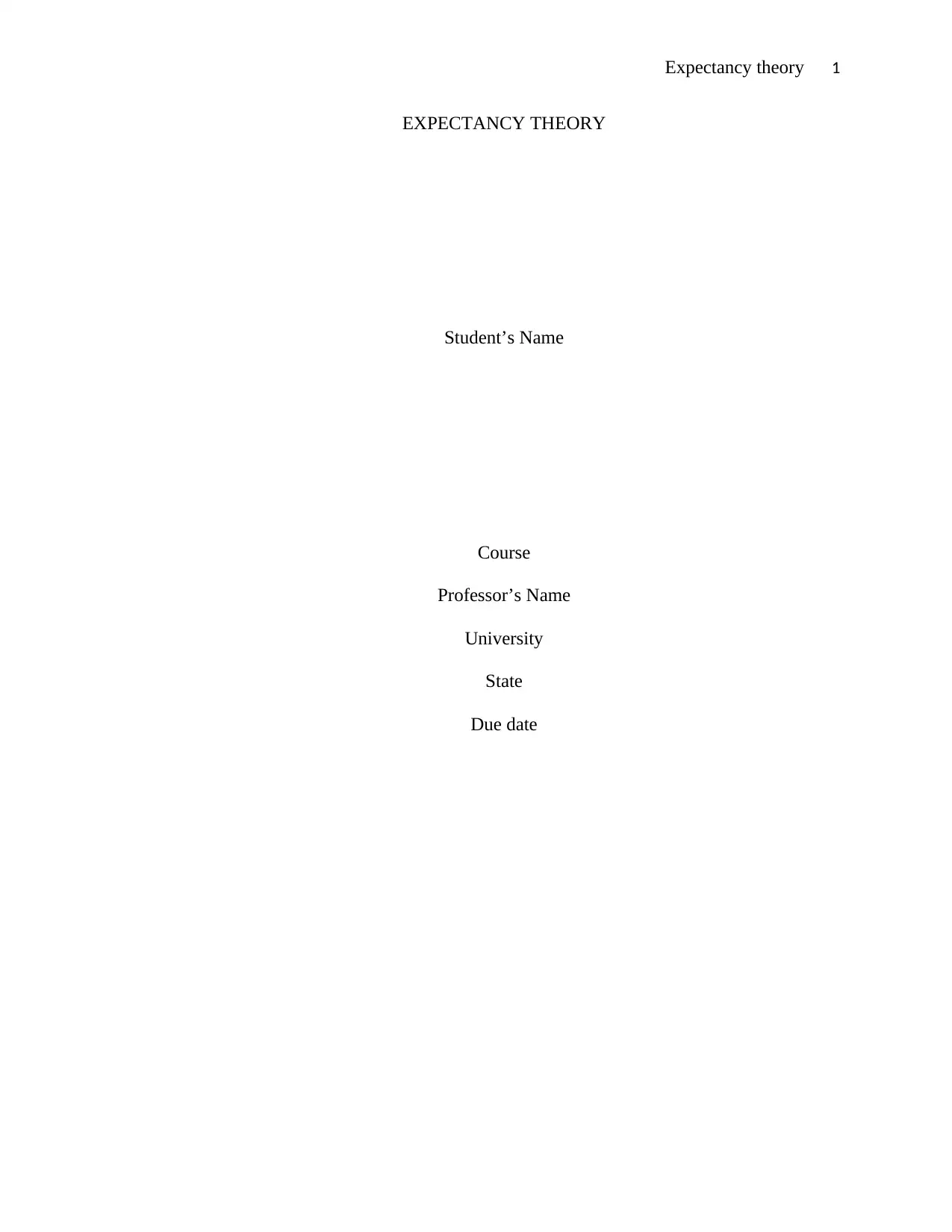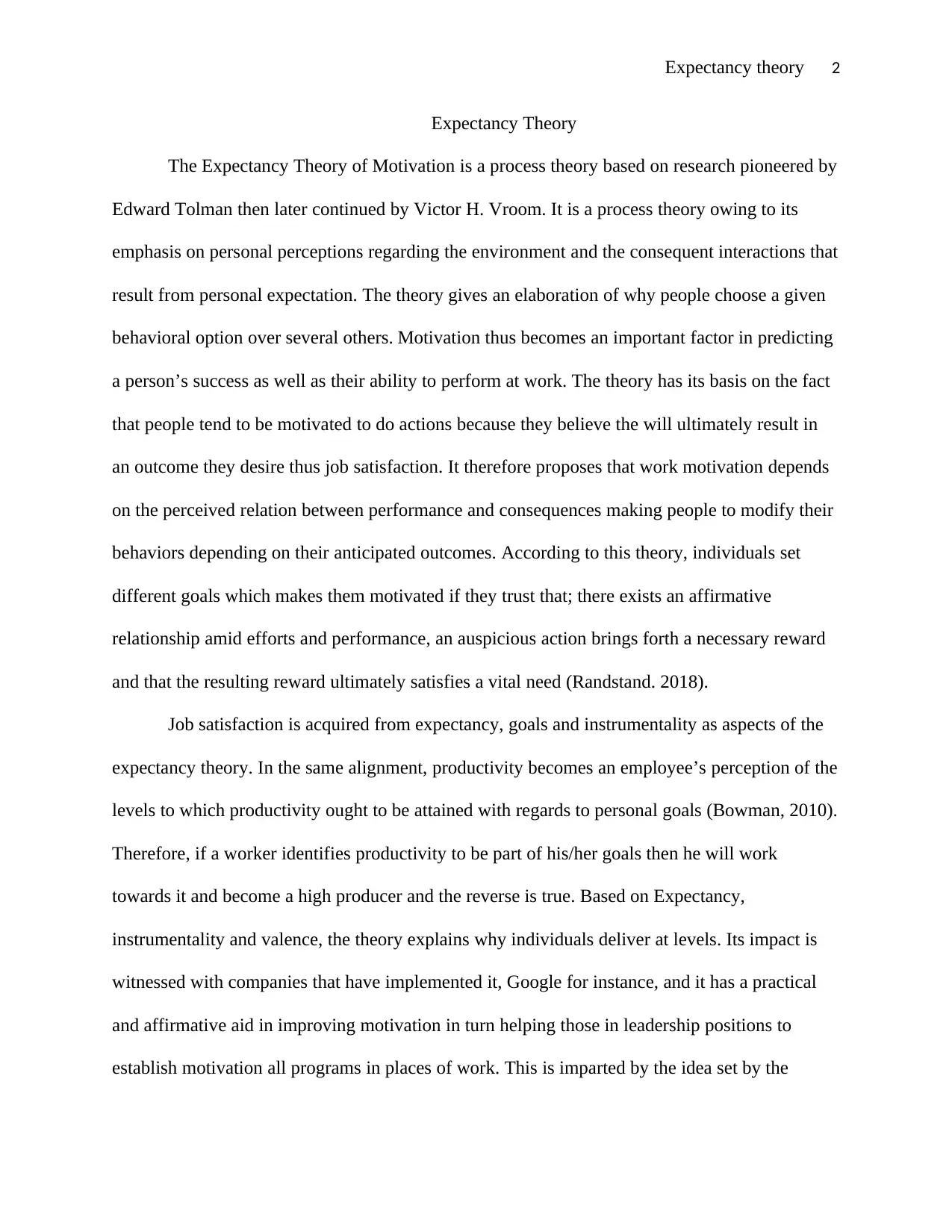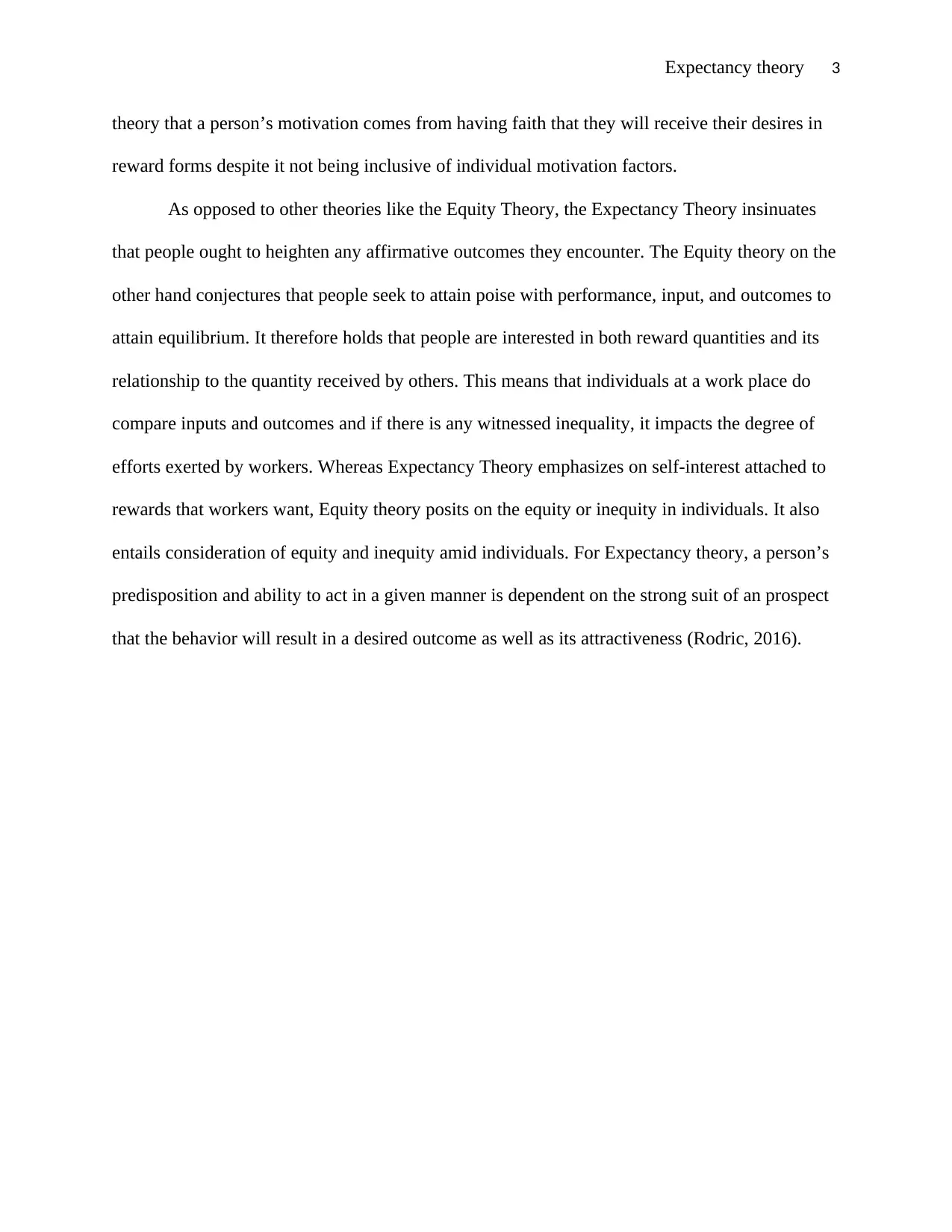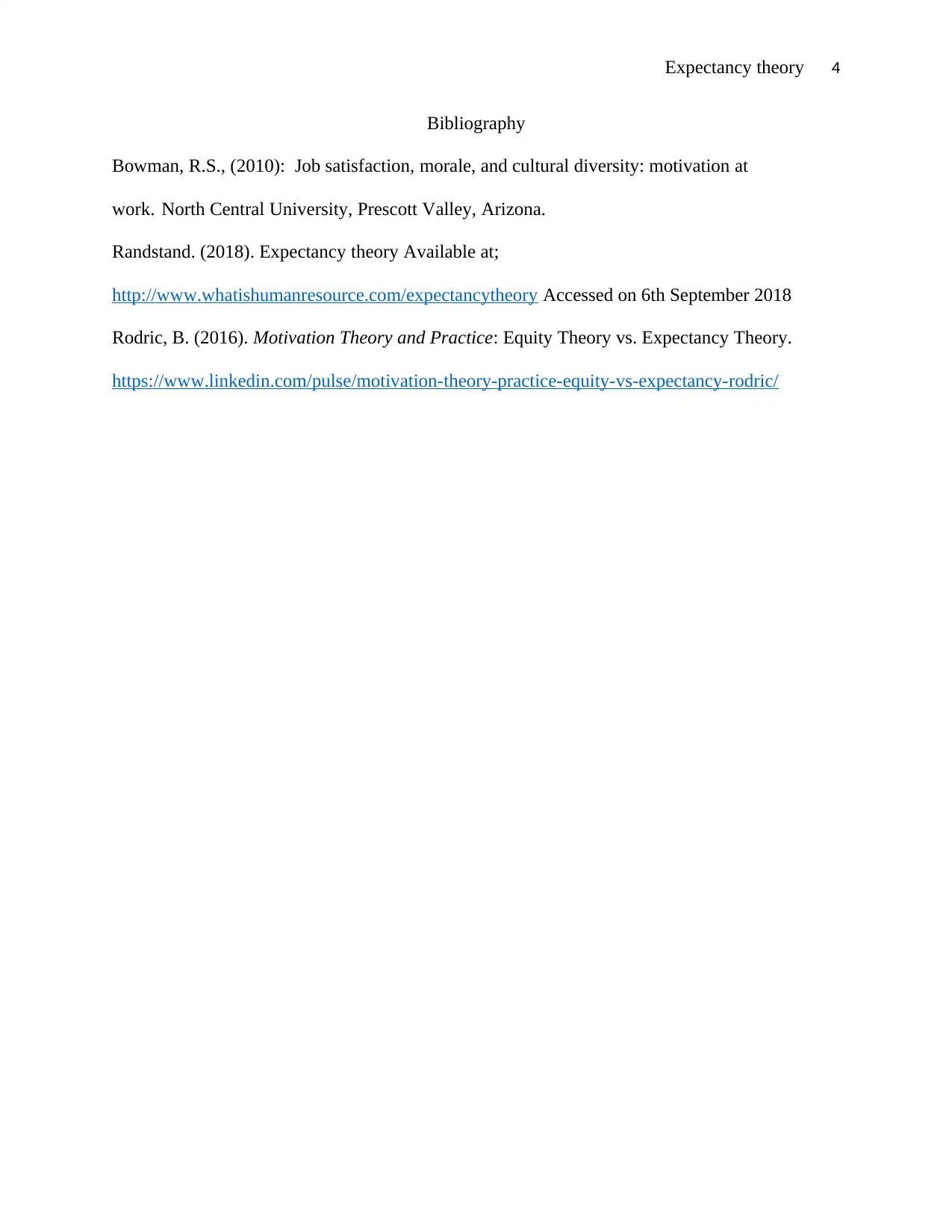Expectancy Theory and Motivation: Google's Approach
VerifiedAdded on 2023/06/07
|4
|664
|418
Report
AI Summary
This report examines the Expectancy Theory of Motivation and its practical application within Google's management practices. The analysis begins with a definition of Expectancy Theory, outlining its core principles of effort, performance, and rewards, and how these factors influence employee motivation and behavior. The report then focuses on Google's implementation of this theory, particularly through its 'objectives and results' system, which involves goal-setting, performance evaluation, and rewards. It highlights how Google encourages employees to create their own goals, which are then reviewed quarterly, with outcomes influencing compensation and promotion opportunities. Furthermore, the report underscores Google's commitment to creating a productive workplace through state-of-the-art resources, employee perks, and benefits, which all contribute to high levels of morale and satisfaction. By providing free meals, gym memberships, and other amenities, Google reinforces the connection between performance and desired outcomes, aligning with the Expectancy Theory's core tenets. The report concludes by comparing Expectancy Theory with other motivation theories, emphasizing Google's approach to enhancing employee motivation and achieving organizational success.
1 out of 4











![[object Object]](/_next/static/media/star-bottom.7253800d.svg)